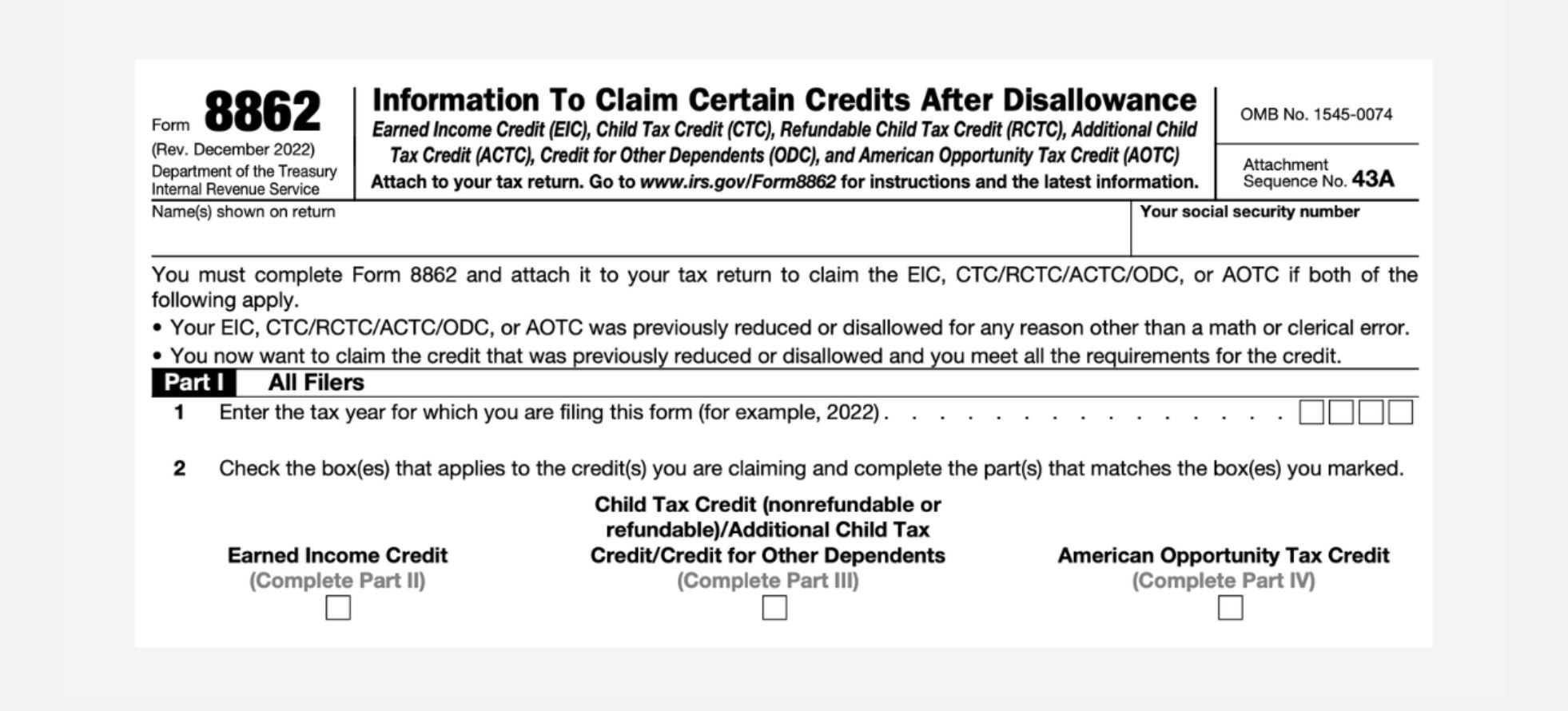

Finance
How To Evaluate An Investment Property
Published: October 17, 2023
Learn how to evaluate an investment property to make wise financial decisions. Understand the finance aspect and maximize your ROI with the right strategies.
(Many of the links in this article redirect to a specific reviewed product. Your purchase of these products through affiliate links helps to generate commission for LiveWell, at no extra cost. Learn more)
Table of Contents
Introduction
Investing in real estate can be a lucrative venture, providing individuals with a means to build wealth and generate passive income. One key aspect of real estate investment is evaluating potential properties to determine their profitability and long-term viability. The process of evaluating an investment property involves conducting thorough research and analysis to make informed decisions.
Whether you are a seasoned investor or just starting out, understanding the factors to consider when evaluating an investment property is crucial. By performing a comprehensive analysis, you can minimize risks and maximize your returns.
In this article, we will explore the key elements to consider when evaluating an investment property. From location and property type to market and cash flow analysis, we will delve into the essential factors that can impact the success of your investment.
By the end of this article, you will have a clear understanding of the key aspects to focus on when evaluating an investment property, empowering you to make confident and informed decisions in your real estate investment journey.
Location
When evaluating an investment property, one of the most critical factors to consider is the location. The location of a property plays a significant role in its potential appreciation, rental demand, and overall profitability.
Here are some key considerations when evaluating the location of an investment property:
- Neighborhood: Assess the quality of the neighborhood in terms of safety, amenities, schools, and overall desirability. A property located in a desirable neighborhood will generally attract higher rental demand and can experience higher property value appreciation over time.
- Accessibility: Evaluate the accessibility of the property to essential amenities such as shopping centers, schools, hospitals, and transportation hubs. Properties in well-connected areas with easy access to major highways or public transportation tend to be more appealing to potential tenants.
- Economic Growth: Research the economic growth and development prospects of the area. Look for regions experiencing population growth, job opportunities, and new infrastructure projects. Investing in areas with a growing economy can lead to increased rental demand and a higher likelihood of property value appreciation.
- Future Development: Investigate any future development plans or projects in the vicinity of the property. This can include new commercial developments, transportation upgrades, or urban revitalization initiatives. Such developments can positively impact property values and rental demand in the future.
- Market Stability: Consider the stability and sustainability of the local real estate market. Look at historical trends, vacancy rates, and rental yields in the area. Investing in a stable market can offer a more predictable rental income stream and a higher likelihood of long-term appreciation.
By thoroughly evaluating the location of an investment property, you can identify areas with strong growth potential and market stability. This sets the foundation for a successful investment and maximizes the chances of achieving profitable returns. Remember, location is a key determinant of a property’s desirability and long-term value, making it one of the most important factors to consider when evaluating an investment property.
Property Type
Choosing the right property type is an essential factor in evaluating an investment property. The type of property you invest in can greatly impact your rental income potential, maintenance costs, and overall return on investment. Therefore, it’s crucial to consider the following factors when evaluating the property type:
- Rental Demand: Research the current rental market demand for different property types in the area. For instance, if the area has a high student population, investing in a student housing property may yield higher rental incomes. Understanding the demographics and preferences of potential tenants will help guide you in choosing the most profitable property type.
- Property Management: Consider the time and effort required for property management based on the property type. Single-family homes may require less daily maintenance than multi-unit apartment buildings or commercial properties. Evaluating your availability and resources for property management will help you choose a property type that suits your investment goals and capabilities.
- Cash Flow Potential: Assess the potential cash flow of different property types. While commercial properties may offer higher rental incomes, they often come with higher operational costs and longer vacancy periods. On the other hand, residential properties like single-family homes or apartments may provide more stability in terms of occupancy and cash flow. Consider your risk tolerance and investment objectives when choosing a property type that aligns with your financial goals.
- Market Demand: Examine the current and projected market demand for different property types in the area. Analyze factors such as population growth, job opportunities, and lifestyle preferences to determine if there is a demand for certain property types like condos, townhouses, or luxury homes. Investing in a property type that aligns with market demand increases the likelihood of finding reliable tenants and achieving consistent rental income.
- Appreciation Potential: Consider the historical and projected appreciation potential of different property types. Some property types, such as condominiums in urban areas or vacation rentals in popular tourist destinations, may have higher appreciation rates due to high demand and limited supply. Understanding the long-term appreciation potential of different property types can help you evaluate their overall investment value.
By carefully considering the property type, you can select an investment property that aligns with your investment goals, maximizes rental income potential, and offers long-term appreciation prospects. Evaluate the rental demand, property management requirements, cash flow potential, market demand, and appreciation potential of various property types to make an informed decision. Remember, the right property type can significantly impact the success and profitability of your investment.
Market Analysis
Performing a thorough market analysis is a crucial step in evaluating an investment property. Market analysis involves studying the local real estate market to understand its current conditions, trends, and potential risks and opportunities. By conducting a comprehensive market analysis, you can assess the viability and profitability of investing in a particular area. Here are some key components of market analysis:
- Sales Trends: Evaluate the recent sales trends in the area. Look at the average sale prices, the number of properties sold, and the length of time it takes for properties to sell. Analyzing sales trends can help you gauge the demand for properties in the market and identify any potential price fluctuations.
- Rental Market: Study the local rental market, including vacancy rates, average rental prices, and rental yield. This information will help you understand the rental demand and potential rental income for your investment property. Additionally, research tenant preferences and needs to align your property with the target market.
- Supply and Demand: Assess the balance between supply and demand in the market. Evaluate factors such as population growth, job market, and development projects that may influence the supply of and demand for properties. Understanding the supply and demand dynamics will enable you to make informed decisions and avoid oversaturated markets.
- Economic Factors: Consider the overall economic factors that can impact the market. Look at the unemployment rate, GDP growth, and any major industries driving the local economy. A strong and diversified economy typically contributes to a stable real estate market with potential for growth.
- Competition: Analyze the competitive landscape in the market. Identify other properties for sale or rent that are similar to your potential investment property. This information will help you assess the level of competition and determine a competitive price or rental rate for your property.
By conducting a comprehensive market analysis, you can gain valuable insights into the current conditions and future potential of the local real estate market. This information will inform your investment decisions and help you choose areas with strong growth potential and rental demand. Remember, market analysis is crucial in assessing the viability and profitability of an investment property.
Cash Flow Analysis
One of the primary goals of investing in real estate is to generate positive cash flow – the income that remains after deducting all expenses associated with the property. Evaluating the cash flow potential of an investment property is crucial to determine its profitability and sustainability. Here are the key components to consider in a cash flow analysis:
- Rental Income: Assess the potential rental income you can generate from the property. Consider the average rental rates in the area and the property’s size, location, and amenities. Estimating the rental income accurately is essential to determine whether the property can cover the expenses and generate positive cash flow.
- Operating Expenses: Calculate the various operating expenses associated with the property. This may include property taxes, insurance, maintenance costs, property management fees, utilities, and any other recurring expenses. Ensure you take into account all the necessary expenses to accurately estimate the cash flow.
- Vacancy Rate: Consider the potential vacancy rate of the property. It’s essential to factor in the likelihood of periods when the property may be unoccupied and not generating rental income. Research the historical vacancy rates in the area to estimate a realistic vacancy rate for your property.
- Financing Costs: If you plan to finance the property, calculate the mortgage payments and any other financing costs. Include the interest rate, loan term, and down payment amount in your analysis. Understanding your financing costs will give you a clearer picture of the cash flow and ROI.
- Other Income and Expenses: Consider any additional income streams or expenses associated with the property. This could include income from laundry facilities, parking spaces, or storage units, as well as expenses like HOA fees or special assessments. Accounting for these additional factors will give you a more accurate cash flow analysis.
By conducting a comprehensive cash flow analysis, you can determine the potential income and expenses of the investment property. This analysis will help you assess the property’s profitability and make informed decisions about its cash flow potential. Remember, positive cash flow is crucial for sustaining your investment and generating a reliable passive income stream.
Return on Investment (ROI)
Return on Investment (ROI) is a key metric in evaluating the financial performance and profitability of an investment property. ROI measures the return that an investor can expect to receive on their investment relative to the cost of the property. Evaluating the ROI provides valuable insights into the potential profitability and helps determine if the investment aligns with your financial goals. Here are the key considerations when analyzing the ROI:
- Net Income: Calculate the net income from the property, which is the rental income minus all expenses. This includes operating expenses, financing costs, property management fees, and vacancy rates. The net income represents the return generated from the property.
- Investment Cost: Determine the total investment cost, which includes the purchase price of the property, closing costs, and any renovation or repair expenses. It’s essential to have a clear understanding of the initial investment to accurately calculate the ROI.
- Rental Yield: Calculate the rental yield, which is the annual rental income divided by the property’s purchase price. The rental yield provides a percentage that indicates the annual return from the property.
- Appreciation: Consider the potential appreciation of the property over time. Appreciation refers to the increase in the property’s value. Including the potential appreciation in the ROI analysis gives a more comprehensive view of the long-term return on the investment.
- Cash Flow: Analyze the cash flow generated by the property. A positive cash flow indicates that the property generates more income than expenses, contributing to the overall return on investment.
When evaluating ROI, it’s important to set realistic expectations based on market conditions and your investment strategy. Different investment properties may have varying levels of ROI based on factors such as location, property type, and market demand. By thoroughly analyzing the ROI, you can assess the profitability of the investment property and make informed decisions about its potential returns. Remember, a higher ROI indicates a more favorable investment opportunity, aligning with your financial goals and maximizing your return on investment.
Financing Options
When evaluating an investment property, understanding your financing options is essential to make informed decisions about how to fund the purchase. Financing can significantly impact the overall cost, cash flow, and return on investment of the property. Here are some financing options to consider:
- Traditional Mortgage: Obtaining a traditional mortgage from a bank or lending institution is a common option for financing an investment property. This involves putting down a down payment (usually 20% or more) and securing a loan with a fixed or adjustable interest rate.
- Private Lenders: Private lenders offer alternative financing options for investment properties. These lenders may have different qualification criteria or offer more flexible terms compared to traditional lenders. It’s important to thoroughly evaluate the terms, interest rates, and repayment conditions when considering private lenders.
- Hard Money Loans: Hard money loans are short-term loans provided by private investors or companies. These loans are typically used for properties that require quick funding or have unique circumstances. Hard money loans often have higher interest rates and shorter repayment periods.
- Home Equity: If you already own a property, you may have the option to use the equity in that property to fund your investment. This involves taking out a home equity loan or a home equity line of credit (HELOC) to access the funds for the down payment or purchase of the investment property.
- Partnerships: Collaborating with partners or forming joint ventures is another financing option. This allows you to pool resources and share the financial responsibilities and risks associated with the investment property.
When evaluating financing options, it’s essential to consider factors such as interest rates, loan terms, down payment requirements, and potential impact on cash flow. Additionally, you should evaluate the suitability of each option based on your financial situation, investment goals, and risk tolerance. Consulting with a financial advisor or mortgage professional can provide valuable guidance and help you select the financing option that best aligns with your investment strategy and financial objectives.
Remember, the financing option you choose can greatly influence the overall cost and return on investment of the property, so it’s crucial to carefully evaluate and compare the available options before making a decision.
Property Management
Effective property management is crucial for the success of your investment property. Whether you choose to manage the property yourself or hire a professional property management company, ensuring proper management is essential to protect your investment and maximize returns. Here are some key considerations when evaluating property management:
- Time and Availability: Assess your own availability and willingness to dedicate time to managing the property. Property management requires handling tenant inquiries, maintenance requests, rent collection, and other operational tasks. If you have a busy schedule or lack experience in property management, hiring a professional property management company may be a better option.
- Expertise and Experience: Evaluate your knowledge and experience in property management. Managing a property involves understanding local landlord-tenant laws, lease agreements, property maintenance, and tenant screening. Hiring a professional property manager can provide the expertise needed to efficiently handle these tasks and ensure compliance with legal and operational requirements.
- Cost of Property Management: Consider the cost of hiring a property management company and factor it into your financial analysis. Property management fees typically range from 5% to 10% of the monthly rental income. While hiring a property manager will incur additional expenses, it can save you time and effort in the long run, maintaining the value and profitability of your investment.
- Tenant Relations: Evaluate your ability to handle tenant relations and resolve conflicts. Managing tenant relationships requires effective communication, conflict resolution skills, and the ability to address tenant concerns promptly. A property management company can handle tenant inquiries, mediate disputes, and ensure tenant satisfaction, reducing your stress and enhancing tenant retention.
- Maintenance and Repairs: Assess your ability to handle property maintenance and repairs. Maintenance issues can arise at any time and require prompt attention. A property management company typically has a network of trusted vendors and contractors to handle maintenance and repairs efficiently, minimizing disruption and maintaining the property’s value.
By carefully evaluating your capabilities, availability, and the cost-benefit analysis, you can make an informed decision about whether to manage the investment property yourself or hire a professional property management company. Effective property management ensures tenant satisfaction, reduces vacancies, and protects your investment, ultimately contributing to the long-term success and profitability of your investment property.
Property Condition
Evaluating the condition of an investment property is crucial to gauge its current state, potential maintenance needs, and overall value. Assessing the property condition allows you to identify potential issues and estimate the costs associated with repairs and renovations. Here are some key considerations when evaluating the property condition:
- Exterior: Inspect the exterior of the property, including the roof, siding, windows, and landscaping. Look for signs of wear and tear, damage, or any necessary repairs. Assess the overall curb appeal of the property, as it can significantly impact its marketability and potential rental income.
- Interior: Evaluate the interior of the property, including the walls, flooring, plumbing, electrical systems, and appliances. Look for any signs of water damage, leaks, mold, or outdated features that may require attention. Assess the functionality and overall condition of the property’s interior to determine if any repairs or upgrades are necessary.
- Structural Integrity: Assess the structural integrity of the property. Look for cracks in the walls, foundation issues, or any signs of structural damage that may require professional evaluation. Identifying potential structural issues early on can help you avoid costly repairs or future complications.
- Mechanical Systems: Inspect the property’s mechanical systems, including HVAC, plumbing, and electrical systems. Ensure that these systems are in good working condition and meet safety standards. If there are any issues, consider the costs of repairs or replacements when evaluating the property’s overall condition and investment potential.
- Compliance and Codes: Research local building codes, permits, and compliance requirements. Ensure the property meets safety standards and any necessary permits or inspections have been obtained. Non-compliance issues can result in additional costs or legal complications, so it’s important to address any compliance issues during the evaluation process.
By conducting a thorough evaluation of the property’s condition, you can estimate the costs associated with repairs, renovations, and ongoing maintenance. This assessment will help you determine the overall value of the property and make informed decisions about potential improvements or negotiations with sellers. Remember, understanding the property’s condition is crucial for accurately assessing its investment potential and avoiding unexpected costs.
Comparable Sales
When evaluating an investment property, analyzing comparable sales in the area is a vital step in determining its value and potential profitability. Comparable sales, also known as “comps,” are recently sold properties that are similar to the property you are considering. Here are the key aspects to consider when evaluating comparable sales:
- Location: Look for sold properties in the same or similar neighborhoods as the investment property. Location plays a significant role in determining property value, so it’s important to compare properties in the same local or comparable areas.
- Property Type: Consider the property type when looking at comparable sales. Look for properties with similar attributes, such as the number of bedrooms and bathrooms, square footage, lot size, and amenities. Comparing properties that are similar in type and features will provide a more accurate assessment of value.
- Sale Price: Analyze the sale price of the comparable properties. Look for properties that have recently sold at prices that are similar to what you expect to pay for the investment property. This will help you determine a realistic purchase price and potential resale value.
- Adjustments: Take into account any differences between the investment property and the comparable sales. Adjustments may be necessary to account for variations in size, condition, upgrades, or other factors that could impact property value. Evaluate the adjustments made to the comparable sales to estimate the potential value of the investment property.
- Timeframe: Consider the timeframe in which the comparable properties sold. Recent sales provide a more accurate reflection of current market conditions. Ideally, look for sold properties within the past few months to ensure they reflect the current market value.
Analyzing comparable sales provides valuable insights into the potential value and market valuation of the investment property. By comparing similar properties in the same area, you can gauge the fair market value, understand the property’s potential appreciation, and negotiate a favorable purchase price. It is important to note that while comparable sales analysis is an essential tool, it should be done alongside other factors such as property condition, location, and market trends to provide a comprehensive evaluation of the investment property.
Investment Strategy
Having a clear investment strategy is crucial when evaluating an investment property. Your investment strategy serves as a roadmap to guide your decision-making process and ensure that your investment aligns with your financial goals. Here are some key considerations when developing an investment strategy:
- Investment Objective: Define your investment objective. Are you looking for long-term appreciation, passive income, or a combination of both? Understanding your objective will help you determine the type of property, location, and investment approach that best suits your goals.
- Risk Tolerance: Assess your risk tolerance. Real estate investment inherently involves risks, such as market fluctuations, potential vacancies, or unexpected expenses. Determine your comfort level with risk and factor it into your investment strategy. Higher-risk strategies may offer the potential for greater returns, while lower-risk strategies prioritize stability and consistent income.
- Timeframe: Determine your investment timeframe. Real estate investments tend to be long-term in nature. Consider whether you are looking for a short-term investment with quick turnaround or a long-term investment with the potential for appreciation and sustained income over time.
- Property Type: Choose the property type that aligns with your investment strategy. Consider factors such as rental demand, potential cash flow, and growth prospects. For example, if you’re seeking steady rental income, residential properties like multi-unit apartment buildings or single-family homes may be suitable. If you’re looking for higher returns through property value appreciation, commercial properties or properties in emerging markets may be more appropriate.
- Exit Strategy: Define your exit strategy. Consider how and when you plan to exit the investment. This could involve selling the property, refinancing, or leveraging the property to acquire additional investments. Having a clear exit strategy ensures that your investment aligns with your long-term financial goals.
An investment strategy provides you with a framework for evaluating and selecting investment properties that align with your goals and risk tolerance. It allows you to make informed decisions based on a solid foundation and minimizes the likelihood of impulsive or speculative investments. By developing a well-defined investment strategy, you can navigate the real estate market more confidently and maximize your chances of achieving long-term success and profitability.
Conclusion
Evaluating an investment property requires a comprehensive analysis of various factors to ensure its profitability and alignment with your financial goals. By considering key elements such as location, property type, market analysis, cash flow, return on investment, financing options, property management, property condition, comparable sales, and investment strategy, you can make informed decisions and increase your chances of success in real estate investment.
Location plays a critical role in a property’s potential appreciation and rental demand. A desirable neighborhood with access to amenities and a growing economy can contribute to long-term value and profitability. Assessing the property type is crucial, as it impacts rental income, maintenance costs, and overall return on investment. Researching the market and analyzing sales trends, rental demand, and economic factors provide insights into the current conditions and future potential of the area.
Conducting a cash flow analysis helps estimate potential income and expenses, ensuring the property generates positive cash flow. Calculating return on investment provides a snapshot of the property’s financial performance relative to the investment cost. Evaluating financing options helps determine the best approach to fund the purchase and minimize costs.
The decision to self-manage or hire a professional property management company requires careful consideration of time, expertise, and costs. Assessing the property condition identifies potential maintenance needs and associated costs. Analyzing comparable sales provides insights into the property’s value and market valuation. Developing an investment strategy guides your decision-making and ensures your investment aligns with your objectives, risk tolerance, and desired timeframe.
In conclusion, evaluating an investment property requires diligent research, analysis, and consideration of various factors. By taking a comprehensive approach and considering the elements discussed in this article, you can make informed decisions and set the foundation for a successful real estate investment. Remember to regularly assess market conditions, monitor the property’s performance, and adapt your strategy as needed to ensure ongoing success in your real estate investment endeavors.














